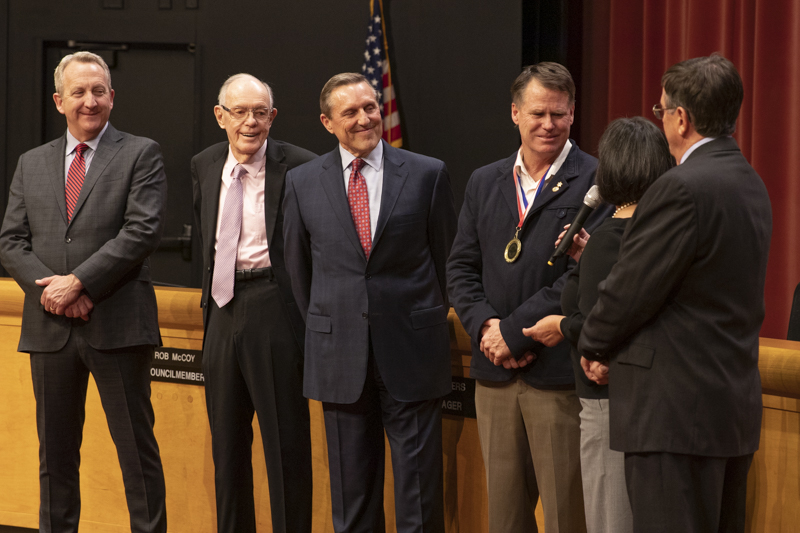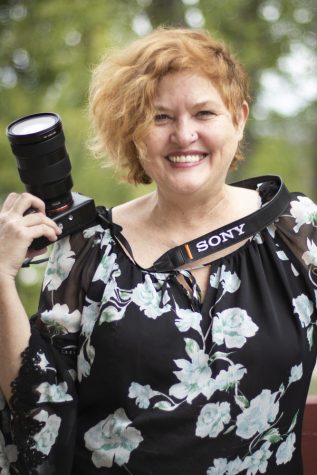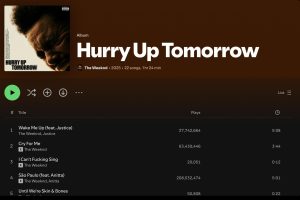Thousand Oaks City Council addresses a variety of ongoing topics ranging from Chief of Police transition to 5G appeal
From left to right, Council Members Rob McCoy and Ed Jones, along with Mayor Al Adam, watch as Tim Hagel receives praise from Mayor Pro Tem Claudi, Bill-de la Peña and Council Member Bob Engler during the Thousand Oaks City Council meeting on Tuesday, Jan. 14, in Thousand Oaks, Calif. Photo credit: Evan Reinhardt
January 21, 2020
The first Thousand Oaks City Council meeting of 2020 began with the commendation of outgoing Chief of Police, Tim Hagel, concluding his 31-year career with the Ventura County Sheriff’s Department.
Al Adam, Mayor of Thousand Oaks, brought Hagel up to the podium, praising him for his service to the city and the community such as his work with the Safe Passage Program, which serves at-risk youth. This also includes his appointment of two Vulnerable Populations Officers to serve the homeless population, his work towards the Borderline tragedy, and the Woolsey and Hill fires.
“Your really shining moment was working with the Borderline tragedy and the tremendous meaningfulness that you have for the families and the victims, you gave it your all,” said former Mayor Rob McCoy, who continued in emotional recognition of Hagel’s achievements as Chief of Police. “I know you even postponed your retirement a year just to help us with this situation.”

Mayor Adam presented Hagel with a first-of-its-kind award, a lifetime ambassadorship to the City of Thousand Oaks.
As of this month, James Fryhoff, Ojai’s Chief of Police and 29-year veteran of the Ventura County Sheriff’s department, has replaced Hagel as Thousand Oaks Chief of Police.
As the meeting moved on to public comments, 19 year old student, Matthew Mitnick, took the podium and spoke on his concerns about there being a lack of affordable housing in his hometown of Thousand Oaks. Mitnick, the son of former Thousand Oaks city manager Scott Mitnick, was in attendance with his friend Avi Kapur, 19.
Both Mitncik and Kapur are political science majors at Moorpark College, who were sharing their concern that they will not be able to afford to move back to Thousand Oaks after they finish college.
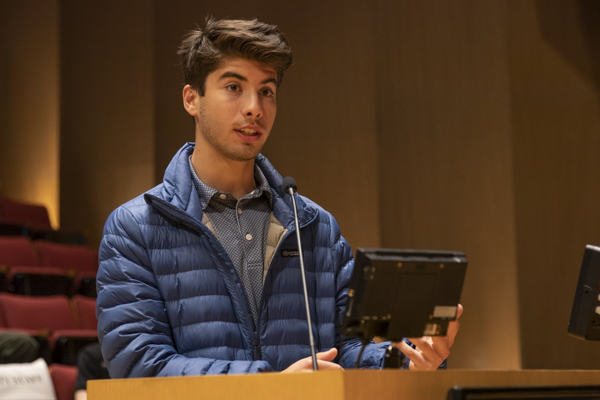
“This is a topic that directly affects me because after I graduate from Moorpark and go on to a four year university,” said Kapur. “I want to be able to come back to a Thousand Oaks where I can afford housing, and right now that is just not a Thousand Oaks that exists today.”
The bulk of the meeting was dominated by the discussion of the appeal of the 2018 approval of the 5G wireless communications facility in Thousand Oaks by the Planning Commission.
There were 34 speakers, with the primary representative of the anti-5G camp being Henry Lane, the attorney who was responsible for creating the 113 page appellate document which was filed with the Thousand Oaks City Council on Jan. 10.
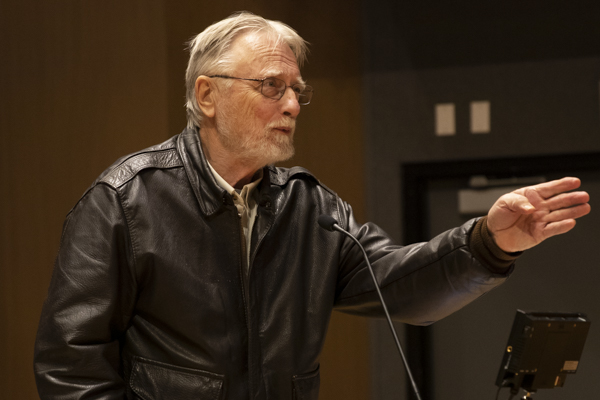
The majority of the speakers addressing the council were strongly against the wireless project, primarily stating concerns that the 5G wireless technology radiation may have a negative effect on their health. There were also concerns that the landscape would be compromised in the area where the three towers would be placed, resulting in the removal of trees.
Addressing the latter concern was Verizon representative and attorney Kevin Sullivan, who told the council that there would be no tree removal for the Candlecrest site.
After hours of testimony, inquisition and debate by the Verizon and appellate attorneys, council members, residents and community members of the proposed wireless site, the decision to appeal the project was put to vote by Mayor Adam.
In a 3-2 outcome, the appeal was denied with council members Bill-de la Peña and McCoy voting to uphold the appeal.
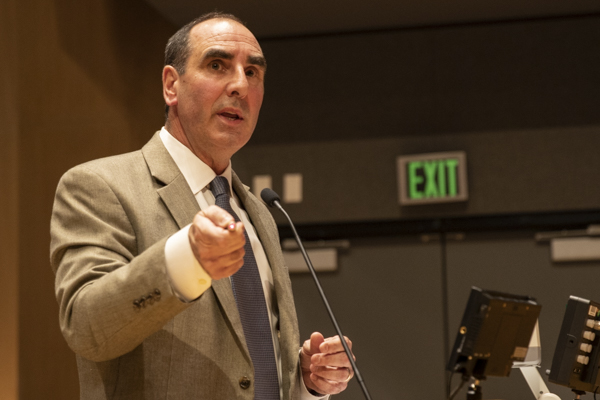
The next Thousand Oaks City Council meeting is set for Jan. 28, at 6 p.m. in the Thousand Oaks Civic Auditorium.

